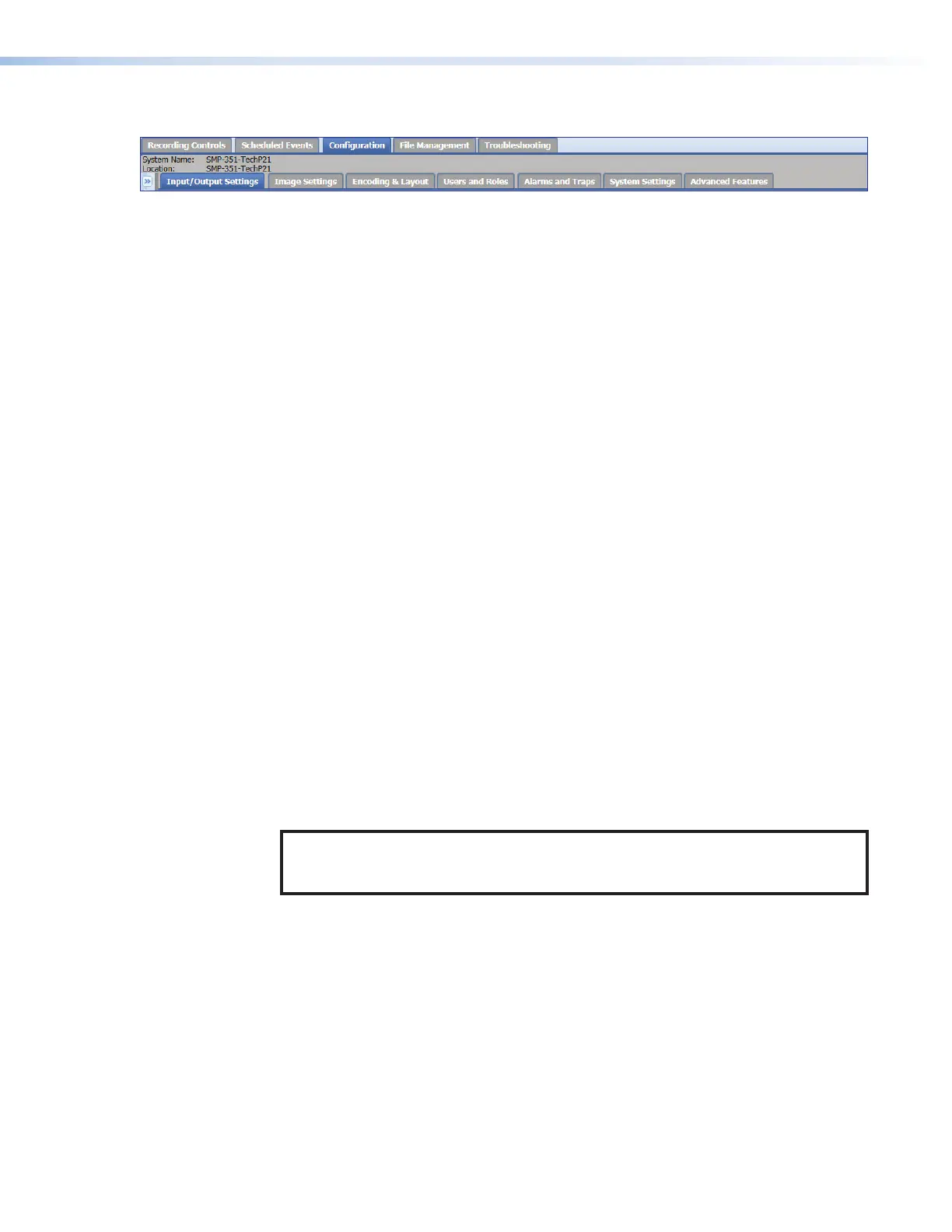SMP300 Series • Web-Based User Interface 73
Configuration Tab Features
1
1
2
2
3
3
4
4
5
5
7
7
6
6
Figure 50. Configuration Tab and Sub-tabs
The pages within Configuration include the following (see figure50):
1
Input/Output Settings (see page74) — Change the name for each input, select the
video format for input 3, select an aspect ratio type, and enable or disable Auto-Image,
Auto Memory, HDCP authorization for each input.
Configure audio for each channel (A and B). For SMP 351 models, adjustments are for
audio level only. For the SMP 352 and SMP 351 models, adjustments can be made to
many audio levels, filter and tone (bass and treble), and dynamic compression.
Output one of several video test patterns for use during display setup, select the refresh
rate for the local HDMI output, and configure the universal OSD content, size, and style.
2
Image Settings (see page79) — Configure video input sampling and sizing, set up
overscanning of SMPTE input signals, and adjust picture controls (brightness, contrast,
and the like). Save or recall input and user presets.
3
Encoding & Layout (see page81) —
From the first expandable panel in this page:
• Set up AV encoding
• Configure the streaming method, protocol, and settings
• Create encoder presets
• Create streaming presets
From the second panel:
• Configure layouts (arrangement of windows)
• Select or create layout presets
• Select the background image
• Configure metadata elements
From the third panel:
• Select metadata to associate with a recording file
• Create recording profiles
4
Users and Roles (see page86) — Set administrator and user passwords.
NOTE: The factory configured passwords for all accounts on this device have
been set to the device serial number. In the event of a complete system reset, the
passwords convert to the default, which is no password.
5
Alarms and Traps (see page88) — Set up the e-mail server and the sender and
recipient e-mail addresses for notifications within this page. Select the alarm "priority"
level for each of several types of errors or conditions monitored by the unit.
6
System Settings (see page89) — Configure settings in ten expandable panels. An
administrator can configure settings for unit identity, communication, storage, and the
like. Configure settings for network and serial communication, identity (unit name and
network location), and date and time. Also, update firmware, add a license, and save
configurations or restore a configuration from a saved file.
7
Advanced Features (see page93) — Enable a web browser client option on the
unit or upload new applications such as the Digital I/O port configuration plug-in.
For more detailed information on these pages, see the SMP300Series Embedded Web
Pages Help File.
50
